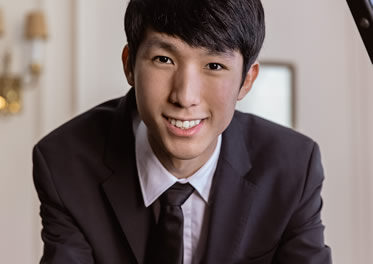In addition to being one of the most accessible and successful operas of all time, Georges Bizet’s Carmen has served as a cash cow for opera companies all over the world, helping ensure financially secure seasons – and perhaps the ability to stage less popular, and, gasp, even modern operas. The North Carolina Opera begins its second season with this French favorite at the cavernous Memorial Auditorium in downtown Raleigh and although not a sellout, there was a nicely filled house.
Carmen is the embodiment of that artistic creation that tanked at its original presentation, so much so that at its world premiere and initial run in 1875 at the Opéra Comique in Paris they were forced to give away tickets to pack the house. The story gets even more tragic with the death of Bizet at the age of 36 only three months after the premiere of Carmen, never to enjoy the eventual tremendous critical and public acclaim of his opera.
Being French – although possibly influenced by a Russian poem The Gypsies by Pushkin, Carmen deals with all the pain, contradictions, absurdity and tragedy of love. This familiar story of the free-spirit gypsy Carmen, toying with the affections of the decent but pliable Don Jose, resonates with all of us today. Embedded in the narrative are such universal questions as: Will a guy do just about anything for a beautiful, sexy woman? Why do nice guys tend to finish last? Do brunettes have more fun? and, finally, do you get your just rewards in the end?
After an overture containing some of the most familiar tunes ever written, the curtain rises on a square in Seville near a cigarette factory. The set consists of a series of steps and a few different levels which is used throughout the entire opera. Although it is dressed up with slight variations in subsequent scenes, this static backdrop gets a bit tiresome. When we finally meet Carmen (Leann Sandel-Pantaleo), she sings the wildly famous Habanera, “L’amour est un oiseau rebelle,” wherein she proclaims her philosophy of love and what it portends: “…If you don’t love me, I love you, if I love you, watch yourself!” Sandel-Pantaleo has the look (with the help of a black wig) and the allure of sexuality as a weapon, and her voice effectively portrayed the gypsy way of a free and unfettered life combined with the mocking contempt of those, like Don José, who are anchored to a “real job.” However, the dance aspect and many of the large company’s movements seemed cautious and under-rehearsed. The chorus often looked down at the floor for positioning and minor collisions were prevalent.
William Joyner, tenor, singing the part of Don José, was far and away the highlight of the production. While this character is often described as “wimpy and whipped,” Joyner brought a strength and inner power to this poor guy who was simply overtaken by the aggressive sexuality of Carmen. Add to that his precise, pristine tenor voice and his believable acting and stage presence, and you have a star of the first order.
Micaela, the virginal “good girl” chosen by Don José’s mother to be his bride, and the Madonna to Carmen as whore, was played with great innocence by soprano Andres Edith Moore. The final main role, not to demean any of the lesser roles, was the bullfighter Escamillo, sung by David Williams. He played the supreme macho professional in Spain with wonderful bravado and machismo: you hated him immediately! It’s just like High School. Why do the bad boy jerks get all the beautiful girls?
One of the musical highlights was the Act 2 vocal quintet involving the smugglers plus Carmen. This difficult number was quite spectacular in execution and emotion. Speaking of music, Timothy Myers, the conductor, led an orchestra that was flawless in its playing. He always had a firm hand on the balance and was able to elicit spectacular pianissimo playing as well as the more in-your-face virtuosic numbers. Unfortunately, even that high level of playing cannot correct the poor acoustics of this venue, and it sounded like the orchestra was playing from, well, a pit.
The production of an opera is probably the most expensive venture in any of the arts, certainly the most in music. It is a shame, after all this money and energy and the gathering of great singers and musicians, that economics force a limit of only two performances. Despite the presence of some inevitable opening-night less-than-perfect moments, this production of Carmen could undoubtedly mature into a world class version of this timeless classic. Unfortunately, you have only one more day to experience this production by our North Carolina Opera. Do not miss tomorrow’s final performance!
For details of the 10/16 repeat, see the sidebar.











